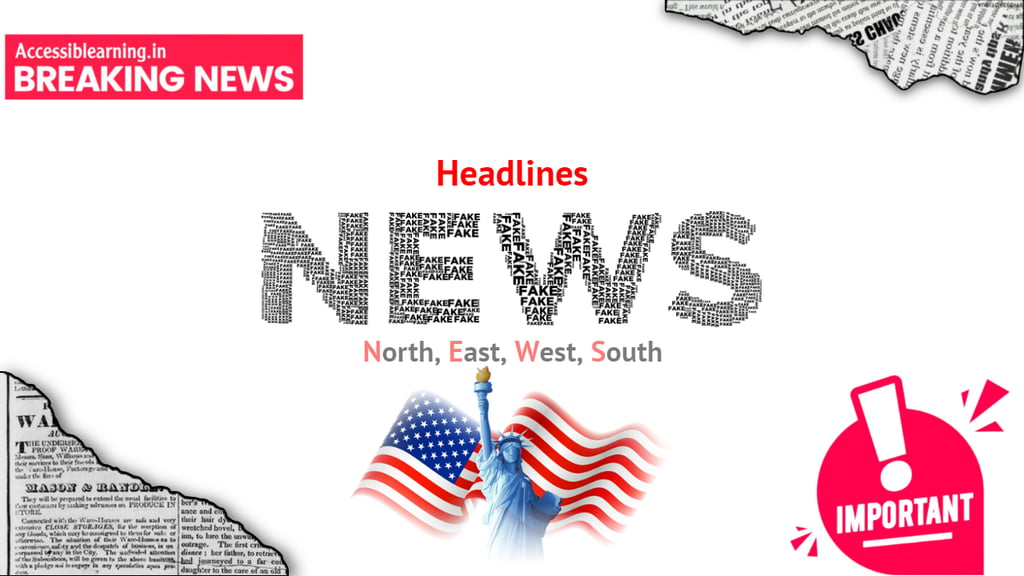
Federal Reserve Cuts Rates: What It Means for U.S. Economy and Households
Discover the most important U.S. news from last week, including updates on the Federal Reserve’s interest rate cut, H-1B visa changes, Supreme Court rulings, government funding battles, election curriculum debates, and heightened security measures. A clear and humanized look at America’s current challenges and transitions.
NEWS/CURRENT AFFAIRSUSAHARSH REALITYNEPOTISM/SOCIAL ISSUES
Kim Shin
9/22/20255 min read


The past week in America was filled with crucial developments that touched politics, the economy, immigration, education, and public security. From a historic interest rate cut to rising concerns over political violence, each event carried weight for citizens and policymakers alike. These stories reflect the pulse of the nation—how decisions made in Congress, the courts, and federal agencies directly shape people’s daily lives and future opportunities.
Looming Government Shutdown: Urgent Rift in Congress
With the federal funding deadline of September 30, 2025, fast approaching, tensions between Democratic leaders in Congress and the Trump administration are rising sharply. Senate Majority Leader Chuck Schumer and House Minority Leader Hakeem Jeffries have demanded a personal meeting with President Trump. Their aim: push for a bipartisan funding deal that protects healthcare access—especially raising Affordable Care Act subsidies and restoring Medicaid funding.
Political Violence & National Mourning: The Charlie Kirk Assassination
The killing of conservative activist Charlie Kirk at a Utah university event has stirred national shock. President Trump ordered U.S. flags flown at half-mast in his honor, and there is bipartisan condemnation.
Additionally, there are growing concerns about political violence and how it is affecting public discourse. Observers are asking: What protections are in place for speakers or activists whose work is deeply polarizing?
Rising Tensions Around Immigration, Rights & State-Federal Power
Multiple developments combined to put immigration enforcement, civil rights, and federal vs. state authority in the spotlight:
Immigration enforcement has intensified. ICE actions, deportation policies, and debates over temporary protected status (e.g., for Syrians or Venezuelans) are creating fear among immigrant communities.
Lawsuits from former FBI officials allege political bias and retaliation in law enforcement.
In Washington, D.C., debates about the federal takeover of policing powers and discussions about reducing D.C.'s autonomy further highlight tension over which level of government holds key powers.
Policy Pushes: Clean Energy vs Regulatory Rollbacks
In response to the rollback of many environmental policies under the current administration, climate activists organized a national event called “Sun Day.” This included community-level renewable energy showcases, electric vehicle displays, efforts to install solar panels, and events advocating for net-zero goals.
Meanwhile, regulatory changes and media restrictions are under scrutiny—especially at agencies like the Pentagon and CDC—raising fears about scientific integrity and transparency.
U.S.—India Trade Relations: Resetting Terms
India’s Trade Minister Piyush Goyal was set to visit Washington (September 22, 2025) to resume long-stalled trade negotiations. Key sticking points include high U.S. tariffs on Indian goods and a steep increase in fees for H-1B work visas—now reportedly as high as $100,000 per year.
There are also discussions on India reducing its oil imports from Russia and opening up agricultural and dairy sectors to U.S. trade.


Historic Rate Cut by the Federal Reserve
The Federal Reserve approved its first interest rate cut of 2025, lowering the federal funds target range by 0.25 percentage points to 4.00-4.25%.
Why it happened: The labor market has shown signs of weakening—job growth has slowed, even though unemployment remains relatively low. Inflation remains above target, but Fed officials judged that risks from a cooling economy outweigh those inflation pressures for now.
Market reaction: Mixed. Some sectors welcomed the cut, while others remained cautious, particularly those sensitive to inflation. Investors are now pricing in the possibility of at least two more rate cuts before the end of the year.
New H-1B Visa Fee & Restrictions
A major change to the H-1B visa program was announced:
Starting September 21, 2025, all new H-1B visa applications (for those outside the U.S.) must include a $100,000 “one-time payment” if their petition is not already accompanied by that fee.
The rule aims to reduce the number of lower-paid foreign workers entering under the specialty occupation visa system, citing concerns that the program has been "deliberately exploited" in ways that undercut wages and disadvantage American workers.
Democratic Opposition to GOP’s Short-Term Spending Bill
Congressional Democrats rejected a House Republican bill meant to avert a near-term government shutdown:
The bill proposed continuing current funding until November 21, 2025, but without major policy riders (additional conditions or changes) that Republicans often include.
Democrats argue that the bill fails to address rising health insurance costs, especially for those who benefit from subsidies under the Affordable Care Act, which could see double-digit premium hikes if subsidies are not extended.
The bill does include some added security funding ($88 million) for lawmakers and federal officials, in light of rising threats after political violence incidents.
Supreme Court Cases Awaiting Decisions & Major Legal Challenges
Several important cases have moved forward or been accepted by the U.S. Supreme Court:
One involves challenges to Trump-era tariffs, specifically whether the president has constitutional authority under the International Emergency Economic Powers Act (IEEPA) to impose tariffs without congressional approval. The case is being prepared for arguments in November 2025.
Another case concerns Temporary Protected Status (TPS) for Venezuelans: the Biden administration’s predecessor had offered protections, and there is now a request before the Court to lift a lower court’s order that prevented the ending of those protections.
Oklahoma Supreme Court Halts Curriculum With Election Misinformation
The Oklahoma Supreme Court temporarily blocked implementation of revised K-12 social studies standards that critics claim include misleading or false information about the 2020 U.S. presidential election.
The decision came after parents and educators filed a lawsuit, arguing the new curriculum could mislead students about the facts of the 2020 election, undermining trust in democratic institutions.
While implementation is paused, legal proceedings will continue. The court did not yet rule permanently that the curriculum is invalid, only that it cannot go forward in its current form.
Boosted Security Funding After Threats and Violence
Following increased political violence, including high-profile incidents, the U.S. administration requested $58 million from Congress to improve security for both the executive and judicial branches.
The request follows the assassination of conservative activist Charlie Kirk, which has rattled political communities and raised concerns about safety at public and political events.
Congress is also holding briefings (some virtual) involving Capitol Police, security officials, and other stakeholders.
The number of reported incidents of political violence this year has surged—hundreds of events, many resulting in injuries or deaths, and concerns that security measures are not keeping pace.
Last week’s headlines in America highlight how interconnected today’s issues have become—economics tied to household stability, immigration linked with global relations, and education entangled with democratic trust. The Federal Reserve’s actions, new visa restrictions, congressional battles, and judicial rulings show how institutions are being tested in real time. Meanwhile, political violence and security concerns remind the nation of the fragile balance between free expression and public safety. As these debates unfold, the choices made will shape not only immediate outcomes but also the long-term direction of the United States.
Subscribe To Our Newsletter
All © Copyright reserved by Accessible-Learning Hub
| Terms & Conditions
Knowledge is power. Learn with Us. 📚


